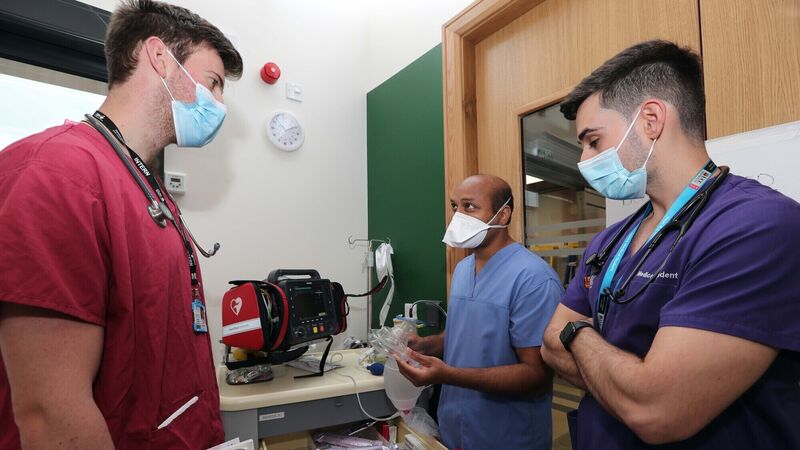'Freak occurrences are hard to predict': How hospitals plan for unpredictable events

Dr. Kanti Dusari, Consultant Emergency Department (centre) shows Dr David O'Donnell, intern (left) and Faruk Alagic, Medical Student UCC (right), equipment. Picture: Jim Coughlan.
CUH's emergency department (ED) has had its share of major emergencies over the decades and in anticipation of anything from an aeroplane crash to an explosion in a chemical plant or an extreme weather event, the ED has to be on the alert.
Major emergency planning is vital to prepare a hospital to be ready for the challenges of a major emergency, says CUH consultant in emergency medicine with a special interest in major incident management, Dr Kanti Dasari.











